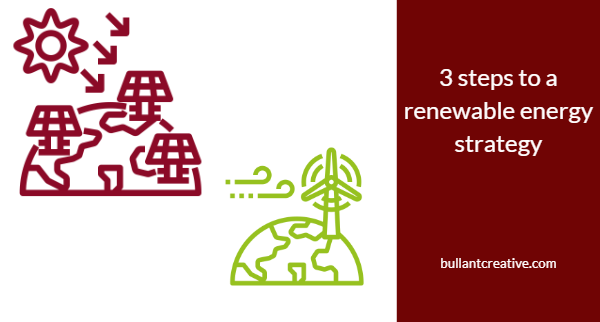Renewable energy strategies for the food & beverage industry can be quite complex and full of uncertainty. However, once the unique needs and location of a particular manufacturing site are understood then the strategy can become self-evident when the different options are examined in the context of technological maturity and payback.
Step 1 – Understand your context
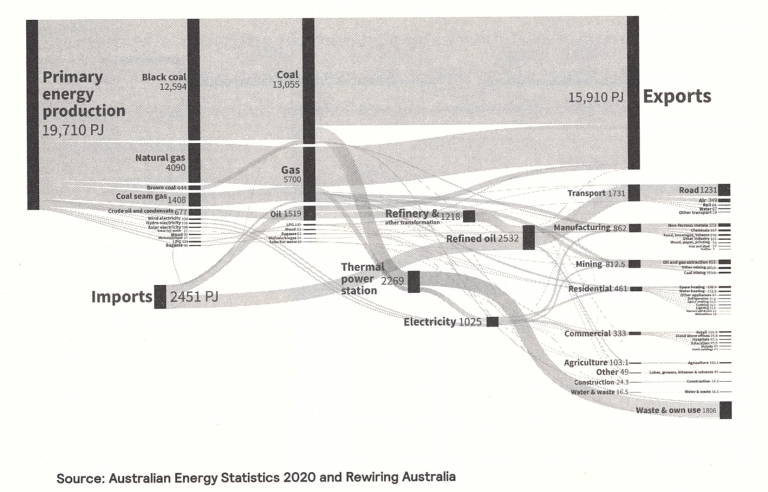
The Sankey diagram above shows the different energy uses in Australia¹. If exports are removed we get the following Sankey diagram¹.
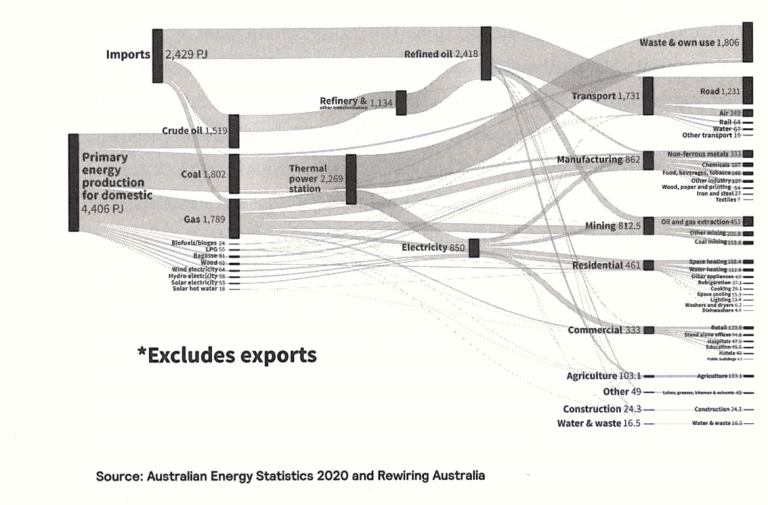
When we focus on the Food & Beverage industry, particularly process heating we can see that there are many sites across different geographical locations as shown below².
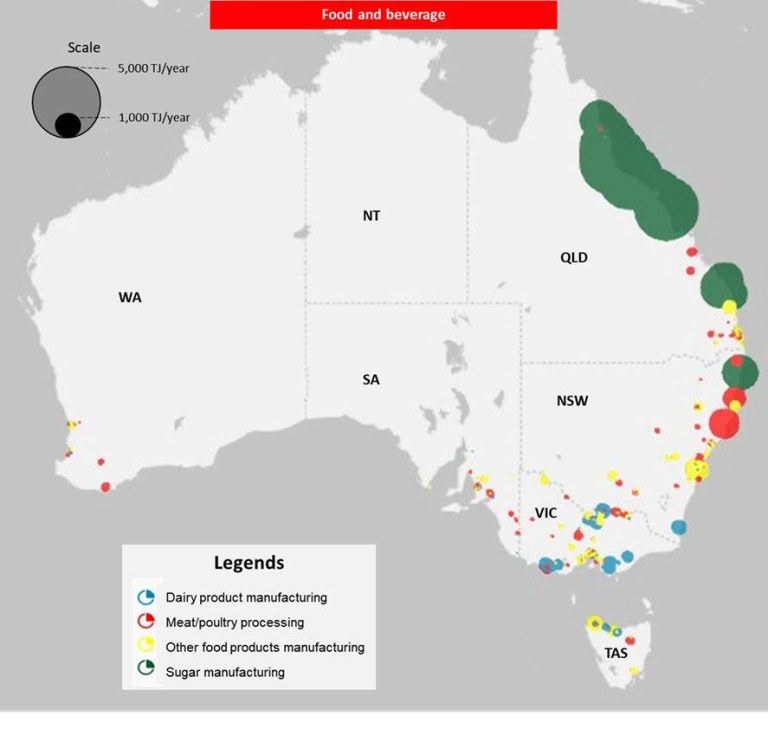
Sugar refineries make food and beverage the second largest process heat user behind non-ferrous metals.
The sugar refineries already use renewable Bagasse, see below². When this is taken into account the Food & Beverage industry drops to 6th place.
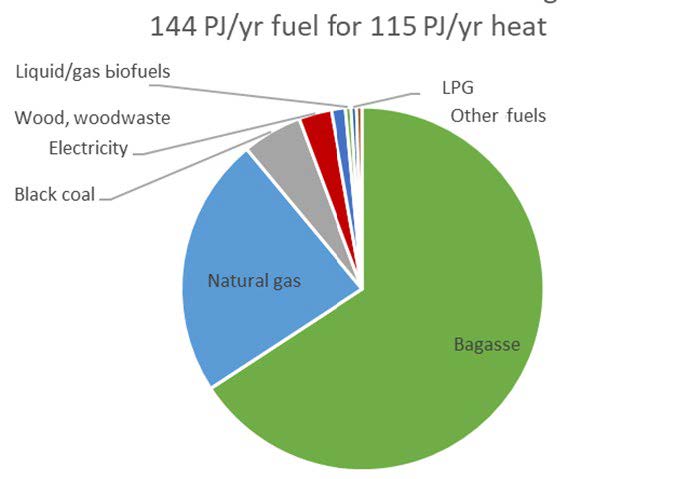
Step 2 – Understand your usage
The next step is to understand the total energy usage for the manufacturing site. I think the best way to do this is by using a Sankey diagram.
Below you will find a Sankey diagram for the distribution of installed energy capacity at a fictitious site.
These are really easy to create at a totally free site (at the time of writing) called SankeyMATIC.com.
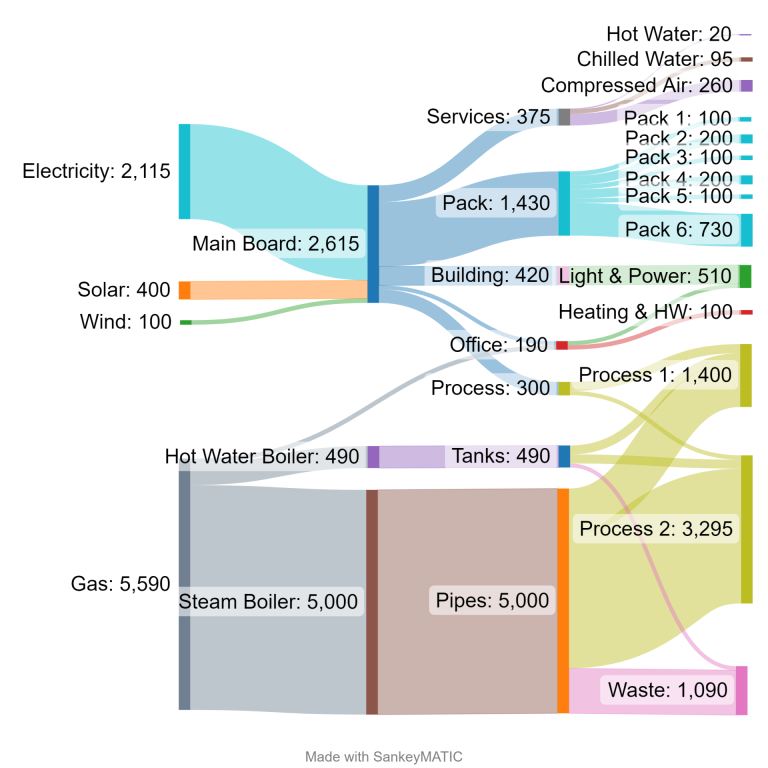
Step 3 – Understand your options
In terms of renewable energy for industry, there are 6 alternatives.
- Bioenergy
- Geothermal
- Renewable electricity
- Renewable hydrogen
- Solar
- System optimisation
Unfortunately, the investigation of these alternatives is reasonably complex and technical although there are 3 guiding principles that will quickly narrow the field of possibilities.
- Location is a big factor (it’s pointless exploring geothermal if you’re not near a ground source)
- The type of product produced is a big factor (biothermal is only a financial option if a waste stream can be converted on the same site e.g. sugar)
- Cost is always a factor (energy cost AT THE POINT OF USE is king)
Applying these guiding principles narrows the field significantly.
Also, FORTUNATELY, a fantastic report prepared for the Australian Renewable Energy Agency (ARENA) by ITP and Pitt&Sherry was produced in 2019-20 which essentially gives a colour-by-numbers approach for you to discover the bespoke solution for your manufacturing site.
Find below a copy of this report (which is freely available on the internet).
Main Report – ARENA Report
Appendices – AREAN Report
Also, in March 2023, the CSIRO released a report on the Renewable Energy Storage Roadmap for Australia. This report gives a good summary of the technology options for storage; their costs and technological maturity. The report has a separate section for the Food & Beverage industry.
Find below a copy of this report (which is also freely available on the internet).
Main Report – Renewable Energy Storage Roadmap (CSIRO)
¹ The Big Switch, Australia’s electric future, Saul Griffith, Black Inc, 2022.
² Renewable energy options for industrial process heat, ITP for the Australian Renewable Energy Agency, November 2019.

